[From Pixabay]
At Founding Fuel, we are big fans of systems thinking because we think it's one of the best antidotes to polarisation everywhere. It not only gives us a better picture of the world, it also helps us in working "with people you don't agree with or like or trust" (as the title of a book by Adam Kahane puts it).
The conventional view is that scientific thinking will take care of such issues. After all, it has proven itself to be the best and the most widely accepted way to arrive at the truth. And it will be easy to work with people we don't agree with or like or trust in the common ground of scientifically arrived-at and accepted truths.
But, scientific thinking has its own limitations as Arun Maira, former Planning Commission member and one of the best practitioners of the discipline wrote in a Founding Fuel essay last year. In The soul in the machine: Thinking about thinking he argued that modern science is incomplete and even an imprecise tool to understand the world and the complicated problems that need solving. Instead of scientific thinking, we need systems thinking.
It's a theme you would have come across often in Founding Fuel. It came up when M Rajshekhar published his book Despite the State: Why India Lets Its People Down and How They Cope in 2021. Watch the session anchored by Maira here.
In 2019, Maira also led a masterclass on Transforming Systems. The series had some of the best minds in India contributing to the topic, based on their extensive experience on the ground. It included Ravi Venkatesan, Kiran Karnik, R Gopalakrishnan, Ajit Rangnekar, Nachiket Mor and Swati Ramanathan sharing their perspectives in thoughtful essays. You can join the public class room here.
For those of you who want to understand systems thinking in a more structured way, here are some book recommendations.
Thinking in Systems: A Primer, by Donella Meadows
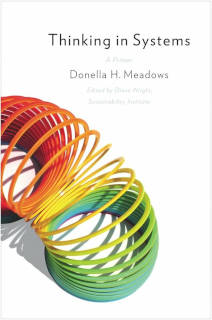
A short introductory book by one of the best in the field. It's also one of the favourites among software engineers, computer scientists and those who suddenly get hit by complexity in general. "I've made more highlights in ‘Thinking in Systems’ than any other book I've read, in part because it's so widely applicable," Arvind Narayanan, computer science professor at Princeton, said. The book walks us through basic systems concepts — feedback loops, stocks and flows, etc., and you are gently nudged to use systems thinking to identify root causes of problems, make better decisions and adapt to changes.
Listen to a lecture by Donella Meadows on why we should take a harder look at assumptions we make about how the world works:
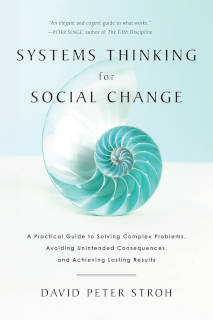
David Peter Stroh is a systems thinking pioneer and founding partner of Bridgeway Partners. The book applies the systems thinking paradigm to address pressing social issues and provides concrete guidelines on how to unfold complex solutions to resolve social problems like mass incarceration, homelessness, and universal pre-school programmes. Stroh argues that conventional thinking often perpetuates the very problems we try so hard to solve, but it is possible to think differently and get different results.
Listen to a lecture by David Peter Stroh as he explains systems thinking tools using a case study on fighting homelessness.
The Fifth Discipline: The Art and Practice of the Learning Organization, by Peter Senge
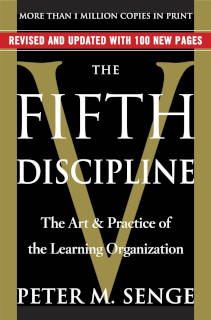
This is a classic, and has sold over a million copies. Peter Senge presents the idea of systems thinking in the context of learning organisations, where new and expansive patterns of thinking are nurtured, and people are constantly learning how to achieve goals they truly desire. Systems thinking is the final and key discipline that integrates the other four: Personal Mastery, Mental Models, Shared Vision, and Team Learning. Senge encourages managers to look at problems from a holistic perspective, rather than trying to divide them into smaller pieces and solve each part separately.
Listen to Peter Senge explaining Systems Thinking for a digital world
The Fifth Discipline Fieldbook: Strategies and Tools for Building a Learning Organization, Edited by Peter Senge et al.
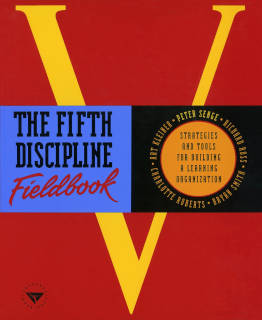
The book is a practical guide for individuals and organisations to develop the skills and practices that Peter Senge introduced in his book. The best part of the book is that It includes real-life stories, exercises, and practical advice to help readers apply the principles of the learning organisation in their own work.
Here's one example, a chart that explains how our beliefs shape what we see.

The Systems View of Life: A Unifying Vision, by Fritjof Capra and Pier Luigi Luisi
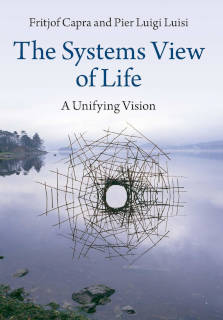
Unlike the four other books, which mostly approach systems thinking from a management perspective, this book takes a much broader view. It's a broad sweep through history and across scientific disciplines. It presents life’s biological, cognitive, social, and ecological dimensions and discusses its philosophical, spiritual, and political implications. Fritjof Capra is best known for the Tao of Physics, which drew parallels between modern science and Eastern philosophy, and you can see that approach in this book too. It integrates the ideas, models, and theories underlying the systems view of life into a single coherent framework.
Here's an interview that captures some interesting ideas from the book:

